
Indigenous Empowerment through Co-management – Land Claims Boards, Wildlife Management, and Environmental Regulation
Co-management boards, established under comprehensive land claims agreements with Indigenous peoples, have become key players in land-use planning, wildlife management, and environmental regulation across Canada’s North. This book provides a detailed account of the operation and effectiveness of these new forms of federalism in order to address a central question: Have co-management boards been successful in ensuring substantial Indigenous involvement in policies affecting the land and wildlife in their traditional territories?
Graham White tackles this question, drawing on decades of research and writing about the politics of Northern Canada. He begins with an overview of the boards, examining their legal foundations, structure and membership, decision-making processes, and independence from government. He then presents case studies of several important boards. His analysis focuses on two issues: the extent of involvement of Indigenous communities and governments in board processes, and board efforts to incorporate Indigenous knowledge into its decisions and operations.
While White identifies constraints on the role Northern Indigenous peoples play in board processes, he finds that overall they do exercise extensive decision-making influence. His findings are provocative and offer valuable insights into our understanding of the importance of land claims boards and the role they play in the evolution of treaty federalism in Canada.
This book is essential reading for scholars and students of relations between Indigenous peoples and the state, co-management systems for natural resources, and Northern government and politics; members of Northern governments and boards will also be interested in the findings presented here, as will members of Indigenous governments and organizations more broadly.
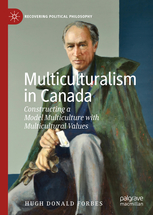
Multiculturalism in Canada: Constructing a Model Multiculture with Multicultural Values
Multiculturalism is often thought to be defined by its commitment to diversity, inclusivity, sensitivity, and tolerance, but these established values sometimes require contrary practices of homogenization, exclusion, insensitivity, and intolerance. Multiculturalism in Canada clarifies what multiculturalism is by relating it to more basic principles of equality, freedom, recognition, authenticity, and openness. Forbes places both official Canadian multiculturalism and Quebec’s semi-official interculturalism in their historical and constitutional setting, examines their relations to liberal democratic core values, and outlines a variety of practical measures that would make Canada a more open country and a better illustration of what a commitment to egalitarian cultural pluralism now means. Consisting of a series of connected essays-including careful considerations of the works of Will Kymlicka and Charles Taylor-this book provides the first comprehensive account of multiculturalism in Canada.
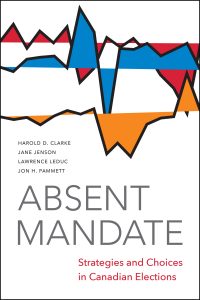
Absent Mandate: Strategies and Choices in Canadian Elections
Absent Mandate develops the crucial concept of policy mandates, distinguished from other interpretations of election outcomes, and addresses the disconnect between election issues and government actions. Emphasizing Canadian federal elections between 1993 and 2015, the book examines the Chretien/Martin, Harper and Trudeau governments and the campaigns that brought them to power. Using data from the Canadian Election Studies and other major surveys, Absent Mandate documents the longstanding volatility in Canadian voting behaviour. This volatility reflects the flexibility of voters’ partisan attachments, the salience of party leader images, and campaigns dominated by discussion of broad national problems and leaders rather than by coherent sets of policy proposals. The failure of elections to provide genuine policy mandates stimulates public discontent with the political process and widens the gap between the promise and the performance of Canadian democracy.
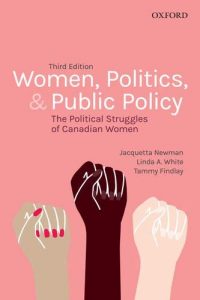
Women, Politics, and Public Policy: The Political Struggles of Canadian Women
The third edition of Women, Politics, and Public Policy examines the intersection of feminism, women’s politics, and public policy-making within a Canadian context. Thoroughly updated with current issues and research, this text is an essential tool for students to understand the many aspects of women’s political activity and its relationship to public policy and social change. Women, Politics, and Public Policy, 3e, is intended for second- and third-year courses on gender and politics, women and politics, and women and politics in Canada out of political science and women’s studies departments at universities nationwide. However, because of the multidisciplinary approach taken in the narrative, readers studying sociology, history, law, and social work may also find the text relevant.
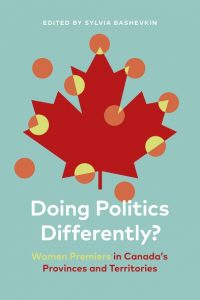
Doing Politics Differently? Women Premiers in Canada’s Provinces and Territories
Women have reached the highest levels of political office in Canada’s provinces and territories, but what difference – if any – has their rise to the top made? Have they changed the content, tone, or style of political debate? What role has gender played in their triumph and defeat?
In Doing Politics Differently? leading researchers from across the country assess the track records of eleven premiers, including their impact on policies of particular interest to women and their influence on the tenor of legislative debate and the recruitment of other women as party candidates, cabinet ministers, and senior bureaucrats.
From Catherine Callbeck in Prince Edward Island to Christy Clark in British Columbia to Eva Aariak in Nunavut, Canada stands out for the variety and number of women who have reached the top. By comparing the performance of women premiers across the country and by evaluating their records in light of the men who preceded and succeeded them, this innovative volume asks how important demographic diversity is to government decision making.
This book will appeal to both students and scholars of Canadian politics, history, and gender studies, and is an accessible read for anyone interested in women’s political and social status.
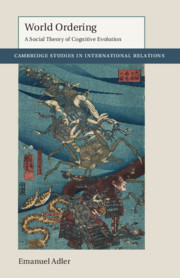
World Ordering – A Social Theory of Cognitive Evolution
Drawing on evolutionary epistemology, process ontology, and a social-cognition approach, this book suggests cognitive evolution, an evolutionary-constructivist social and normative theory of change and stability of international social orders. It argues that practices and their background knowledge survive preferentially, communities of practice serve as their vehicle, and social orders evolve. As an evolutionary theory of world ordering, which does not borrow from the natural sciences, it explains why certain configurations of practices organize and govern social orders epistemically and normatively, and why and how these configurations evolve from one social order to another. Suggesting a multiple and overlapping international social orders’ approach, the book uses three running cases of contested orders – Europe’s contemporary social order, the cyberspace order, and the corporate order – to illustrate the theory. Based on the concepts of common humanity and epistemological security, the author also submits a normative theory of better practices and of bounded progress.

Wirtschaftsgeographie (Economic Geography)
This book systematically discusses classical and new theories of economic geography and invites the critical assessment of their empirical applicability. Based on the spatial disparities and inequalities in economic processes, the authors develop a relational economic geography that meets the challenges of a globalized world economy by integrating interdisciplinary theories.
The 4th edition has been completely revised, traditional concepts have been streamlined for better understanding, and newer approaches have been updated and expanded.
Illustrative case studies and over 100 graphics in 15 chapters support the lecture-accompanying self-study. A bachelor’s and master’s study book for students of geography, social sciences and economics as well as anyone interested in the relationship between space and economy.
This title is also available on various e-book platforms (Amazon, Libreka, Libri) as an e-pub version for mobile readers.

Business and Politics in India
Over the last few decades, politics in India has moved steadily in a pro-business direction. This shift has important implications for both government and citizens. In Business and Politics in India, leading scholars of Indian politics have gathered to offer an analytical synthesis of this vast topic. Collectively, they cover the many strategies that businesses have used to exert their newfound power in recent times and organize the book around a few central concerns. They first analyze the nature of business power and how it shapes political change in India. Second, they look at the consequences of business’ growing power on some important issue areas-labor, land, urban governance, and the media. Finally, they take account of regional variation and analyze state-business relations. This definitive account offers significant insights into how and why corporations have increased their power in contemporary Indian politics.
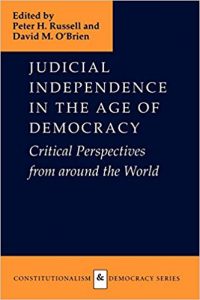
Judicial Independence in the Age of Democracy: Critical Perspectives from around the World
This collection of essays by leading scholars of constitutional law looks at a critical component of constitutional democracy–judicial independence–from an international comparative perspective. Peter H. Russell’s introduction outlines a general theory of judicial independence, while the contributors analyze a variety of regimes from the United States and Latin America to Russia and Eastern Europe, Western Europe and the United Kingdom, Australia, Israel, Japan, and South Africa. Russell’s conclusion compares these various regimes in light of his own analytical framework.
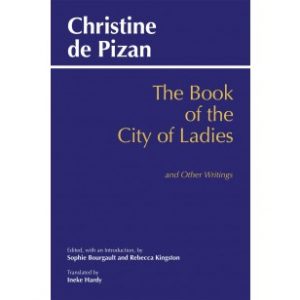
The Book of the City of Ladies and Other Writings
“Fresh, accurate, and engaging, this new translation of the Book of the City of Ladies helps us to understand what made Christine de Pizan so popular with her fifteenth-century contemporaries. The editors provide a rich historical and philosophical context that will be very useful to both students and scholars of the history of political ideas. The translations themselves gracefully navigate the fine line between accuracy and readability with considerable charm. Rounding out this portrait of the turmoil of fifteenth-century France, the volume is enriched by excerpts from other works, Christine’s Vision, the Book of the Body Politic, and the Lamentation on France’s Ills.”
—Kate Forhan, Emeritus, Siena College